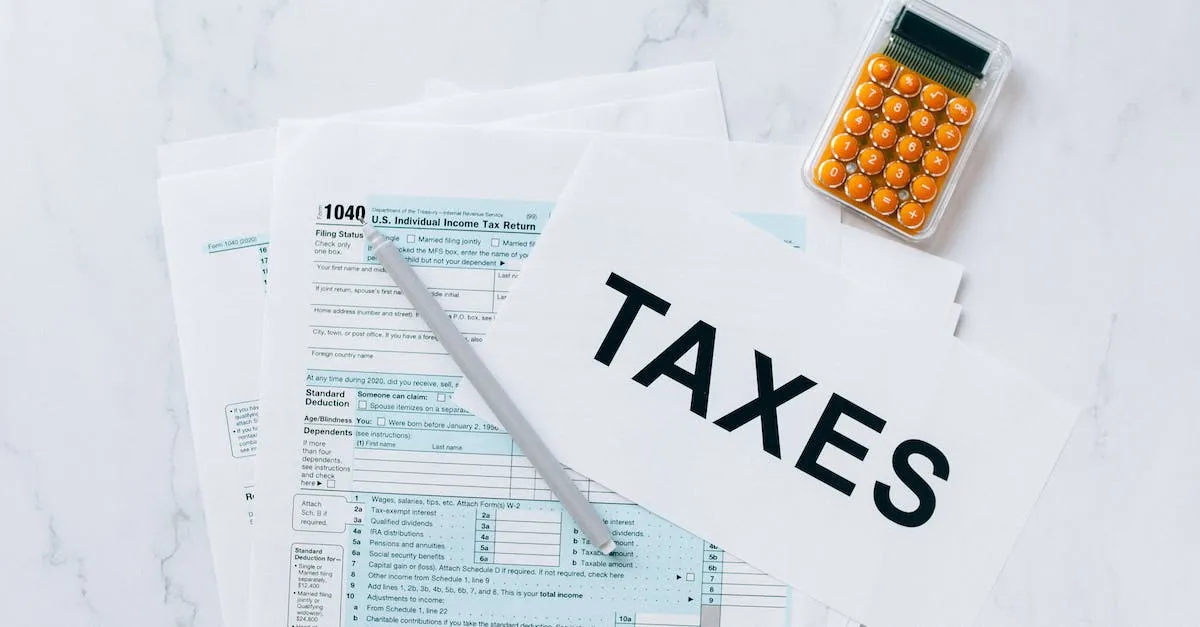A Guide To California Taxes On Rental Income
Renting out property can provide useful income, but also comes with tax implications. This comprehensive guide covers how rental income is taxed in California, including income tax, property tax, rental loss deductions, and more. Gain an understanding of your tax obligations and benefits to make savvy decisions as a rental property owner.
If you’re short on time, here’s the quick answer: Rental income in California is subject to federal and state income taxes. Expenses can be deducted to lower taxable rental income. California also assesses property taxes on rental properties.
Federal Income Taxes on Rental Revenue
When it comes to rental income, landlords must be aware of the federal income taxes they are required to pay. Here are some important factors to consider:
Tax rates and brackets
The tax rate on rental income is based on the landlord’s overall income level and filing status. Rental income is subject to the regular income tax rates, which range from 10% to 37% depending on income level.
Landlords should consult the IRS website or a tax professional to determine their specific tax bracket and the corresponding tax rate.
Passive vs. active income
Rental income is generally considered passive income for tax purposes. This means that it is not subject to self-employment taxes, which are typically paid on active income. However, there are certain circumstances where rental income may be classified as active income.
For example, if the landlord actively participates in the management of the rental property, such as making major management decisions or performing regular maintenance, the income may be considered active and subject to self-employment taxes.
Reporting requirements
Landlords are required to report their rental income on their federal tax returns. This includes reporting the gross rental income received as well as any deductible expenses related to the rental property, such as mortgage interest, property taxes, and repairs.
Landlords should keep detailed records of their rental income and expenses to ensure accurate reporting and to take advantage of all available deductions.
It is important for landlords to stay up-to-date with the latest tax laws and regulations. The IRS website (www.irs.gov) provides valuable resources and information regarding rental income taxation. Additionally, consulting a tax professional who specializes in real estate taxation can help ensure compliance and maximize tax savings.
California State Income Tax on Rentals
When it comes to renting out properties in California, it’s important to understand the tax implications. California imposes state income tax on rental income, and landlords are required to report this income on their tax returns.
Here’s a guide to help you navigate the California state income tax on rentals.
CA Tax Rates
California has a progressive income tax system, which means that the tax rates increase as your income goes up. The tax rates for rental income are based on your overall income and filing status. For example, if you are a single filer and your taxable income is between $58,634 and $299,508, your tax rate is 9.3%.
If your taxable income exceeds $590,746, your tax rate is 12.3%. These rates may vary, so it’s always a good idea to consult the California Franchise Tax Board’s official website for the most up-to-date information (https://www.ftb.ca.gov/).
Rental Loss Deductions
One benefit for landlords is the ability to deduct rental losses from their overall income. If your rental expenses exceed your rental income, you may be able to offset this loss against your other sources of income, such as wages or self-employment income.
However, there are certain limitations and restrictions on rental loss deductions, so it’s important to consult with a tax professional or refer to the Internal Revenue Service’s website (https://www.irs.gov/) for detailed guidelines.
Tax Credits
California offers certain tax credits for rental properties that meet specific criteria. For example, if you own low-income housing, you may be eligible for the Low-Income Housing Tax Credit (LIHTC). This credit can help offset the costs of developing and maintaining affordable housing units.
Additionally, California offers various energy-efficient tax credits for rental properties that implement eco-friendly upgrades. These credits not only benefit the environment but also provide financial incentives for landlords.
You can find more information about these tax credits on the California Tax Credit Allocation Committee’s website (https://www.treasurer.ca.gov/ctcac/).
Understanding the California state income tax on rentals is crucial for landlords to ensure compliance and maximize tax benefits. It’s always recommended to consult with a tax professional or refer to authoritative sources for the most accurate and up-to-date information.
Property Taxes on Rental Properties
When it comes to rental properties in California, property taxes are an important aspect that landlords need to understand. The state has a unique property tax system that affects how much tax you’ll pay on your rental income.
California property tax system
The California property tax system is based on the assessed value of the property. This value is determined by the county assessor’s office and is generally based on the purchase price of the property. The assessed value is then used to calculate the property tax owed.
It’s important to note that property taxes in California are typically higher than in many other states. This is due to the fact that the state relies heavily on property taxes to fund local services and schools.
Proposition 13 tax limits
Proposition 13 is a landmark California law that limits property tax increases. Under Proposition 13, the assessed value of a property can only increase by a maximum of 2% per year, unless there is a change in ownership or new construction.
This means that even if the market value of your rental property increases significantly, your property taxes will not increase at the same rate. This can provide some stability for landlords, as they won’t be hit with sudden and drastic increases in property taxes.
Assessments and exemptions
There are also certain assessments and exemptions that can affect the property taxes on your rental property. For example, if your rental property is located in a special assessment district, such as a community facilities district or a school district, you may be required to pay additional assessments on top of your regular property tax.
On the other hand, there are also exemptions available that can lower your property tax liability. For instance, if your rental property is designated as a historic property, you may be eligible for a property tax reduction or exemption.
It’s important to consult with a tax professional or visit the California State Board of Equalization website for more information on assessments and exemptions specific to your rental property.
Maximizing Tax Deductions and Benefits
When it comes to rental income, maximizing tax deductions and benefits is crucial for landlords in California. By taking advantage of various tax deductions, landlords can reduce their overall tax liability and potentially increase their rental income. Here are some key areas to focus on:
Depreciation
Depreciation is a valuable tax deduction that allows landlords to deduct the cost of their rental property over time. In California, residential rental properties are depreciated over 27.5 years, while commercial properties are depreciated over 39 years.
This deduction can significantly reduce taxable rental income and increase cash flow. Landlords should consult with a tax professional to determine the correct depreciation schedule for their specific property.
Business expenses
Landlords can deduct a wide range of business expenses related to their rental property. This includes mortgage interest, property taxes, insurance premiums, repairs and maintenance costs, utilities, advertising expenses, and professional fees such as legal and accounting services.
By keeping detailed records and documenting all eligible expenses, landlords can maximize their deductions and lower their tax liability.
Recordkeeping requirements
Accurate recordkeeping is essential for landlords to claim deductions and benefits effectively. It is important to keep track of rental income, expenses, and receipts throughout the year. This documentation will not only help in preparing tax returns but also serve as evidence in case of an audit by the IRS.
Landlords can consider using accounting software or online platforms to streamline their recordkeeping process and ensure compliance with tax regulations.
For more detailed information and guidance on maximizing tax deductions and benefits for rental income in California, landlords can refer to the official website of the California Franchise Tax Board at https://www.ftb.ca.gov/.
This website provides valuable resources, forms, and publications specifically tailored to help landlords navigate the complexities of California’s tax laws.
Other California Rental Taxes
In addition to the state and federal taxes that landlords in California must pay on rental income, there are a few other taxes that may apply. It’s important for landlords to be aware of these taxes to ensure compliance and avoid any penalties or fines.
The two main types of additional taxes that may affect landlords in California are transient occupancy taxes and business personal property tax.
Transient Occupancy Taxes
One of the additional taxes that landlords in California may be subject to is the transient occupancy tax, also known as the hotel tax. This tax is imposed on individuals who rent out accommodations for less than 30 consecutive days.
It is typically collected by the landlord or property owner and then remitted to the local government.
The transient occupancy tax rate varies depending on the location within California, with different cities and counties having their own specific rates. For example, in Los Angeles, the transient occupancy tax rate is currently 14%.
This means that if you rent out a property in Los Angeles for short-term stays, you would need to collect an additional 14% on top of the rental fee and remit it to the city.
This tax is often applicable to vacation rentals, Airbnb rentals, and other short-term rental properties. It’s crucial for landlords to familiarize themselves with the transient occupancy tax requirements in their specific area and ensure that they are collecting and remitting the tax appropriately.
Business Personal Property Tax
Another tax that may affect landlords in California is the business personal property tax. This tax is imposed on the value of certain personal property used in a business, including furniture, equipment, and fixtures.
In the context of rental properties, this tax may apply to items such as appliances, furnishings, and other assets that are owned by the landlord and used for rental purposes.
The business personal property tax is typically assessed by the county assessor’s office and the rate varies depending on the location. Landlords are required to report the value of their business personal property and pay the tax annually.
Failure to do so may result in penalties and interest charges.
It’s important for landlords to keep track of their business personal property and accurately report its value to ensure compliance with this tax. Consulting with a tax professional or visiting the official website of the California State Board of Equalization(www.boe.ca.gov) can provide landlords with more detailed information on the business personal property tax requirements in their area.
Understanding and complying with these additional rental taxes in California is crucial for landlords to avoid any financial or legal issues. By staying informed and seeking professional guidance when needed, landlords can effectively manage their tax obligations and ensure the smooth operation of their rental business.
Conclusion
Rental income tax in California involves income tax, property tax, and other taxes. Being aware of your tax obligations as a rental property owner can help minimize liability through deductions and benefits. Consult with a tax professional to develop smart tax strategies around your rental income.
Understanding taxation on your rental properties empowers you to maximize returns.








